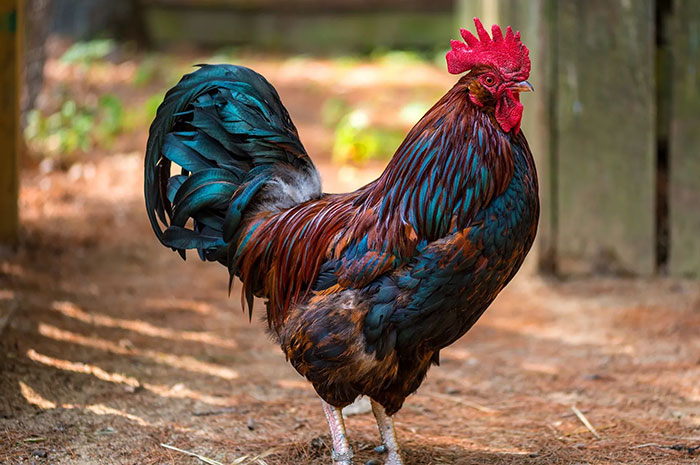The rooster is recognized across various ancient societies for its rich symbolism, ranging from celestial significance to its role in the underworld.
Solar Symbolism and Spirituality
The rooster is commonly linked with the dawn, its crowing heralding the sun’s rise and the dispelling of darkness. This association with the beginning of the day ties the rooster to themes of illumination, awakening, and renewal.
It symbolizes the rooster’s role as a guardian against evil, calling forth light and scattering shadows. The connection to the sun also endows the rooster with attributes of spirituality and the emergence of new ideas, representing the renewal of life and the pursuit of enlightenment.
Underworld Connections in Norse and Celtic Traditions
In contrast to its role as a symbol of light, the rooster also features in Norse and Celtic lore as a creature linked with the underworld. In these cultures, it is sometimes seen as a hostile messenger, its crowing serving as a warning of looming disaster or as a call to the souls of the deceased. This aspect highlights the rooster’s ability to navigate between the worlds of the living, the dead, and the divine.
Cultural Significance in China and Japan
Chinese Culture
In Chinese culture, the rooster symbolizes honesty, physical and moral strength, protection, and fidelity. As part of the Chinese zodiac, the rooster emphasizes courage, dependability, and social harmony. It is also associated with good luck and prosperity, making it a common element in art and festivals.
Japanese Culture
In Japan, the rooster is revered as a sacred symbol, associated with purity and vigilance. It is believed to ward off evil spirits with its crowing, underscoring its spiritual significance and role in protecting and purifying sacred spaces.
Across different cultures, the rooster stands as a symbol with varied meanings, embodying qualities of light and darkness, protection and warning, and the promise of new beginnings. Its symbolic presence underscores the cycles of day and night, life and death, reflecting the dynamic balance of existence.

